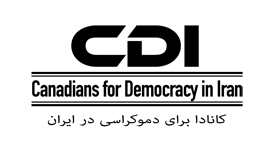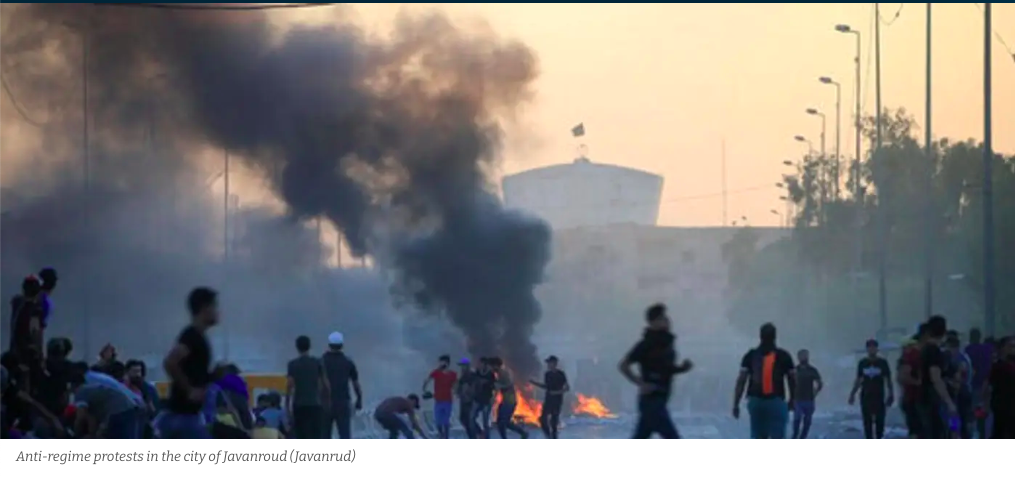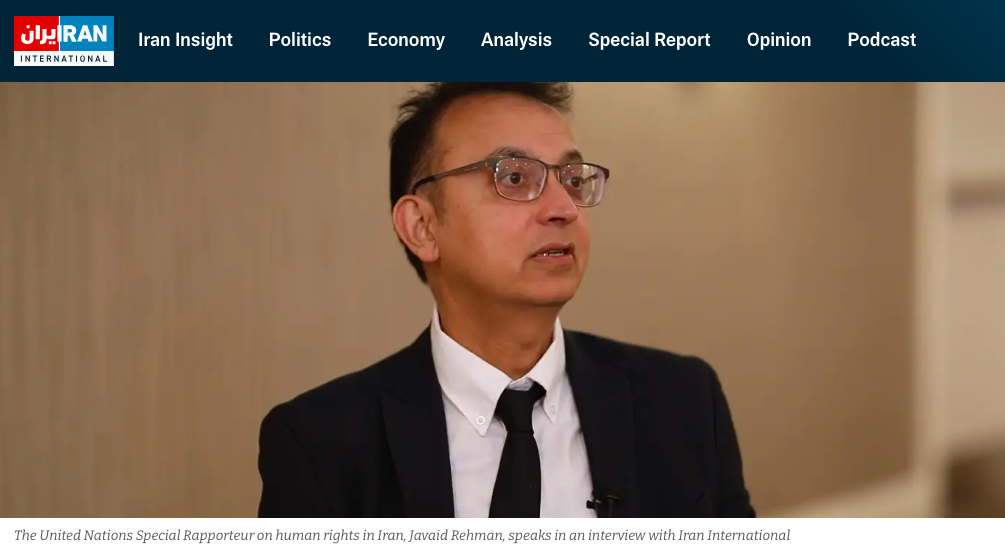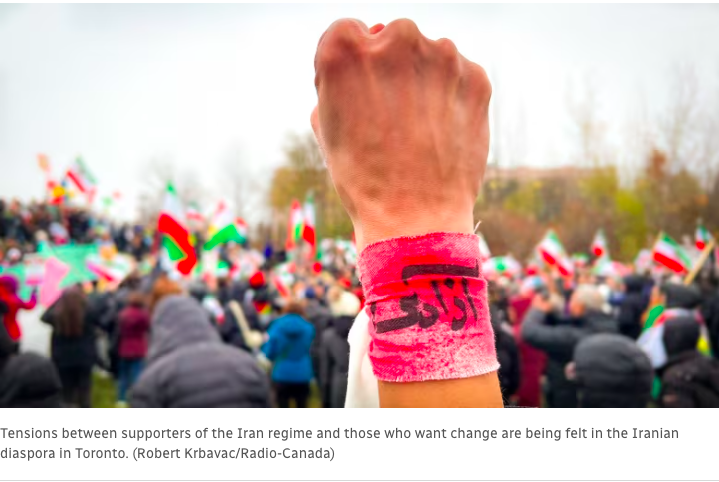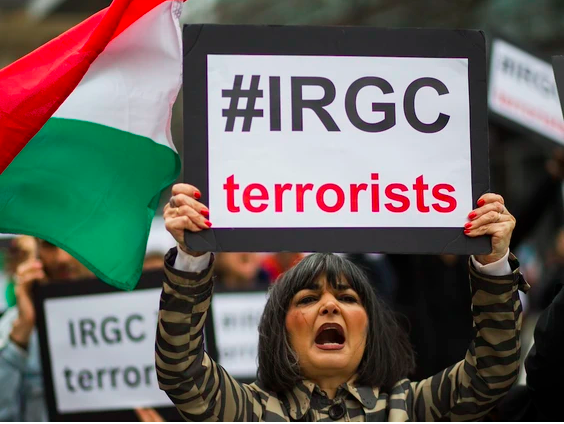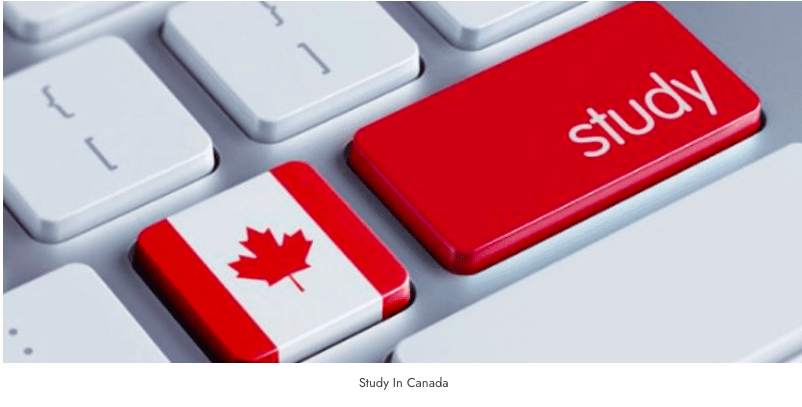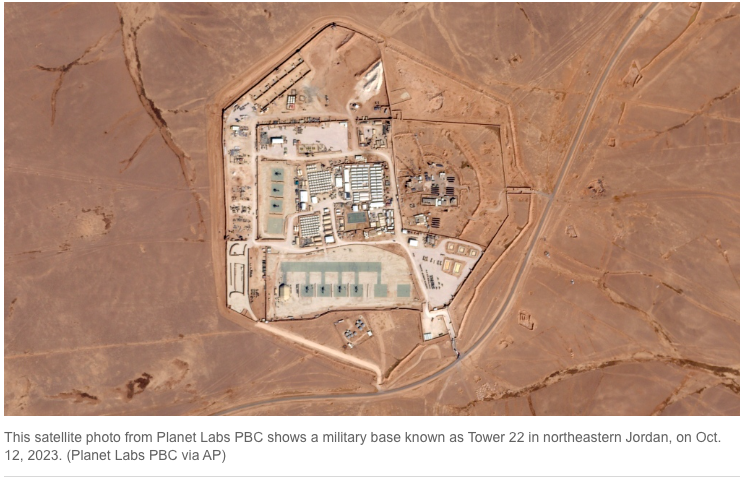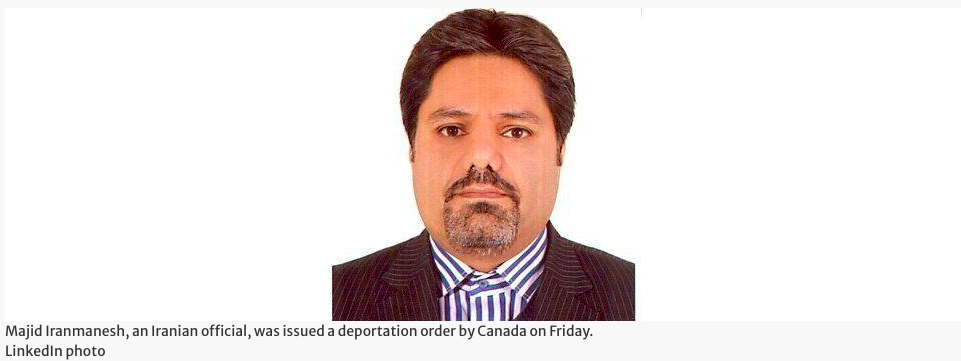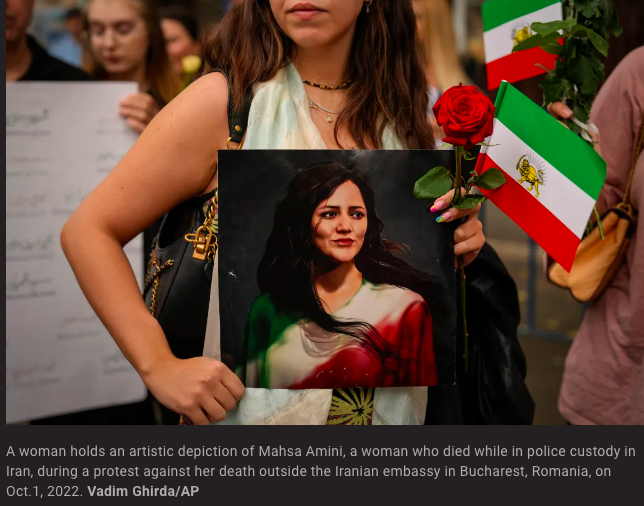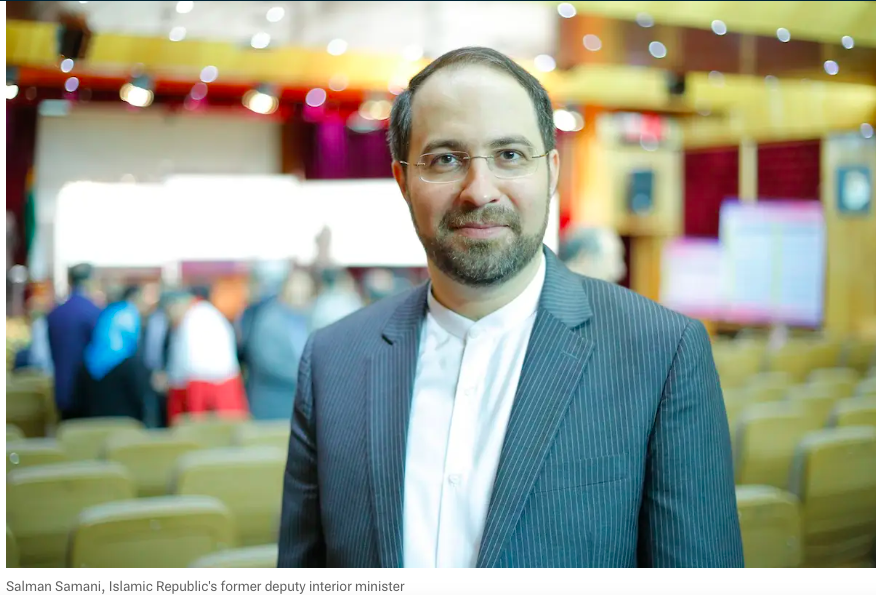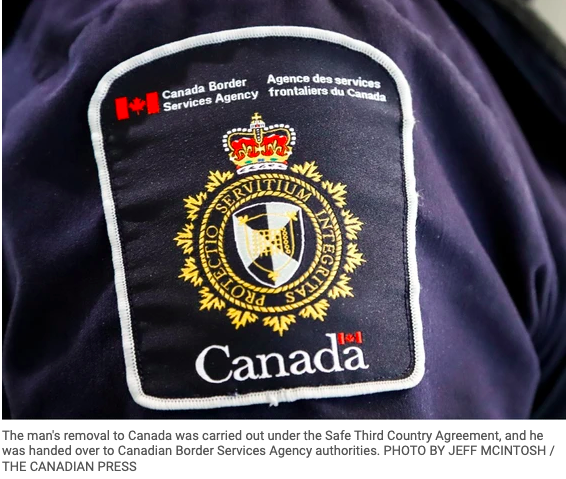Canada will likely have a role in supporting the United States with its retaliatory attacks against Iranian proxies in Syria and Iraq following a deadly drone strike against U.S. troops last weekend in Jordan, say some Canadian analysts.
When asked if Canada would be involved in the growing conflict, the federal government declined to speculate on what it would be.
"Canada strongly condemns the attack by Iran-backed groups against United States forces in Jordan," said Department of National Defence spokesperson Andrée-Anne Poulin in an email to CTVNews.ca, adding that Canada extends its condolences to the families of the fallen U.S. soldiers. "Canada will continue to support our partners in the fight against terrorism in the region – but we will not speculate on potential future military operations at this time."
A drone strike killed three U.S. soldiers(opens in a new tab) at the Tower 22 base on Jan. 28. Two Navy SEALs also died(opens in a new tab) after one went overboard and the other tried to rescue him during a Jan. 11 mission on a ship to confiscate what U.S. officials said were illicit Iranian-made weapons bound for Houthi rebels in Yemen.
Washington blamed the attack on the Islamic Resistance in Iraq, an umbrella group of Iran-backed militias. Iran denied any involvement in it.
The drone, which the U.S. determined was made by Iran, also wounded more than 40 troops at the base in Jordan, Reuters reported.
The U.S. military said it launched retaliatory airstrikes Friday in Iraq and Syria(opens in a new tab) against more than 85 targets linked to Iran's Revolutionary Guards and the militias they support.
Syrian state media said on Friday that an "American aggression" on the sites resulted in a number of casualties and injuries.
Canada's possible role in conflict
While Ottawa won't speculate on Canada's possible role in the widening conflict, some observers expect that Canada will be involved in some way.
Ali Ghanbarpour-Dizboni, chair of the military and strategic studies program at the Royal Military College of Canada in Kingston, Ont., says it's necessary for Canada to honour its obligations toward the United States as its "most important security and commercial partner."
"Canada must show somehow support diplomatically, economically, militarily as much as it can," he said in a phone interview with CTVNews.ca. "Because the United States has the capacity to do all those strikes alone, they do not necessarily need Canada. However, the Canadian government must show support if United States needs Canada because it's also about the alliance between the two countries."
While Ghanbarpour-Dizboni doesn't believe Canada will be directly involved, he said "the Canadian Forces will be involved somehow ... within the framework of the bilateral or multilateral co-operation, providing assistance to American forces."
Since Canada is already helping NATO partners such as in Ukraine(opens in a new tab), he said it will be "another balancing act that Canada has to do in terms of resources and commitment."
Ghanbarpour-Dizboni expects Canada to provide logistical or general assistance involving airstrikes and drone strikes rather than military combat since the U.S. doesn't want to have boots on the ground.
Walter Dorn, a professor of defence studies at the Royal Military College and Canadian Forces College in Toronto, believes Canada's role will be "very minor." He anticipates it will be similar to Canada's response in helping the multinational coalition defend commercial ships in the Red Sea, a major artery for global trade.
Reuters has reported that Iranian-backed Houthi militants have been attacking international shipping vessels in the Red Sea(opens in a new tab) in support of Palestinian militant group Hamas in its war with Israel(opens in a new tab) in the Gaza Strip.
"Canada is likely to endorse U.S. actions against Iranian-backed groups, given that Canada will likely receive intelligence on the reasons for attacking these groups," Dorn said in an email to CTVNews.ca, though he cautions that the intelligence could be wrong, such as the case with incorrect allegations and faulty intelligence about weapons of mass destruction held by then Iraqi president Saddam Hussein two decades ago.
James Horncastle, assistant professor and the Edward and Emily McWhinney professor in international relations at Simon Fraser University in Burnaby, B.C., says Canada will likely have an "indirect" role in the conflict.
"These efforts make sense both in terms of Canada’s alliance with the United States and in terms of recognizing that Canada’s direct force projection capabilities are limited," he said in an email to CTVNews.ca.
As an example, if the United States launches "cyber efforts" against Iran, he anticipates that Canada will provide support, either officially or unofficially, through its membership in the Five Eyes intelligence-sharing alliance.
'A threat to the entire world'
Aurel Braun, professor of international relations and political science at the University of Toronto and associate at the Davis Center for Russian and Eurasian Studies at Harvard University, says it's necessary for Canada to have a role and support its allies like the U.S.
"We are being challenged by Iran. And this is what we need to understand that what happens inside Iraq, what is happening with the Houthi, what's happening with Hamas, all go back to one central address. And that central address is … Iran," he said in a phone interview with CTVNews.ca.
He said Iran has "an incredibly dangerous" and "extremely repressive" regime with a fanatical interpretation of Islam. The regime is anti-democratic with ambitions to dominate the Middle East, destroy its enemies, drive western powers out of the region and acquire nuclear weapons, he added.
"This is not just an American concern, this is a regional concern. And ultimately, it is a global concern," he said. "This regime, if it gets nuclear weapons, it will be a threat to the entire world. … And so, if we don't do our share, we are in a sense, shirking our international responsibilities.
Braun said the U.S. needs to target Iran, rather than its proxies. So far, he says "deterrence" – a psychological relationship that persuades the other side that the cost of attacking it would outweigh the benefits of doing so -- isn't working. Iranian proxies continue to attack ships in the Red Sea and Americans in the region, he noted as a few examples.
"The octopus is the Iranian theocracy that has unlimited ambitions and has been playing very cleverly, the game of chess where the west have been playing checkers," Braun said. "So far, we have done very poorly. … But the deterrence is not working. At least, not well against Iran."
Peter Denton, an associate professor in the Department of History at the Royal Military College of Canada in Kingston, Ont., has a different view. He doesn't believe Canada should be involved in the conflict with Iran and its proxies.
"Even given that for technical reasons our military support would be largely symbolic, we should not be supporting military action in a theatre where we will have no combat decision-making role, especially using the ethical-murky weapons of missiles, rockets and drones," Denton said in an email to CTVNews.ca. "Further, the last thing the world needs is another regional conflict — we need wiser heads on all sides, if our children are going to inherit anything more than a bombed-out, over-heated shell of what the world (and civilization) used to be."
He suggests that Canada should signal its support for moderates in Iran who are working towards peace and prosperity. "More rockets and drones will not bring about peace — but they will ensure greater profits for the munitions-makers, on all sides, and will encourage the extremist elements to continue the bloodshed," he said.
